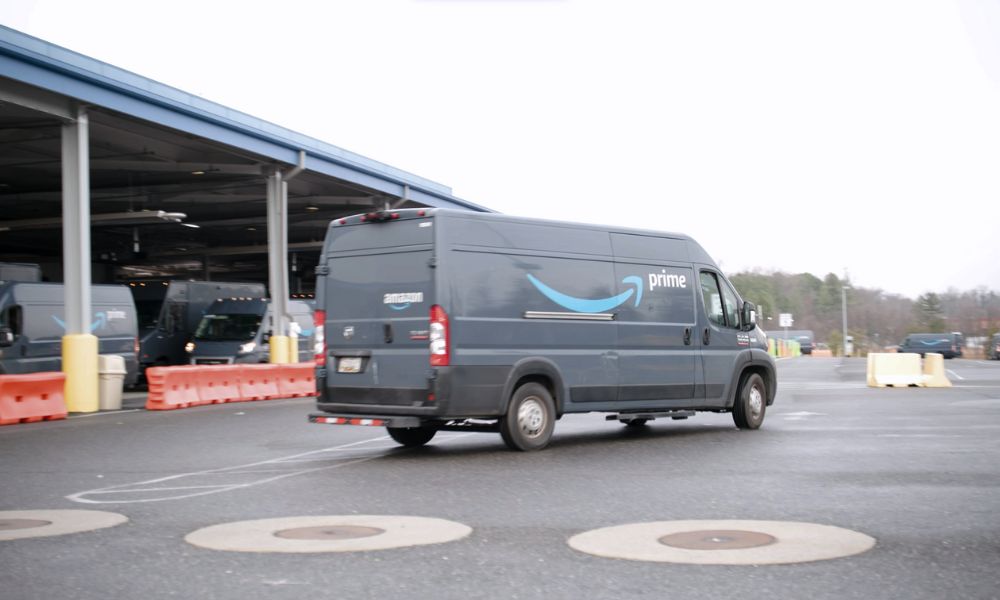Anything can turn excessive when taken too far and in the latest update to the warehouse woes of big corporations, we now learn that France fined Amazon’s French warehouse unit €32 million or $34.9 million for excessive surveillance of its employees. Amazon employee monitoring systems have often been criticized for being too over-the-top in its pursuit for efficiency and this case is no different. Amazon was fined by French regulator CNIL (Commission Nationale Informatique & Libertés) which is a data protection agency that oversees information technology services within the region. The company was found to be in violation of the EU’s data protection regulation on how personal data was collected and used, according to France 24.

Image – Amazon
France fined Amazon’s French Warehouses
According to reports, the investigation began back in 2019 when press reports about Amazon employee monitoring broke and instigated the conversation around the “excessively intrusive” surveillance. These warehouses reportedly used monitoring services, including a “stow machine gun” to measure scanning speeds down to the second, of whether the employees work too slowly or too fast. Scanners had reportedly been put in place to look for employee inactivity and employees felt constantly under pressure at work. The employees were constantly monitored from the time they arrived to when they left work and the surveillance data was reportedly held for 31 days, which the employees were not informed about.
This is not the first time that Amazon has been accused of going too far with the working conditions enforced on its employees. A study by UNI Global Union last year, contacted Amazon employees from 8 countries—United States, United Kingdom, Italy, France, Germany, Poland, Spain and Australia—and 51 percent of them reported that the Amazon employee monitoring systems had a negative impact on their health while 57 percent found their mental health affected by the surveillance. 53 percent of these workers feared losing their jobs as a result of this stringent monitoring while 58 percent of them felt uninformed about how the collected data was used by the company. The study highlighted how backward the work culture at the company appeared, despite their investment in refined technology. The pursuit of productivity is not wrong but the application of technology should be done in a way that doesn’t impede on an employee’s rights as an individual nor treats them like children.
“Many tasks that we encounter at our stations are not calculated and therefore, sometimes, the manager believes that we are doing nothing, even though we are working,” said a French warehouse worker who participated in the UNI Global Union study. The overreliance on technology means that many human elements are lost in the process and there is no one to explain the situation to either. A standard piece of monitoring technology can do just that—observe a single standard or metric of measurement—which leaves an incomplete picture behind and adds to the pressure that employees face to keep pushing themselves in fear of being replaced.
Response to the Amazon-CNIL Situation
We know that France fined Amazon and we also know how the workers feel about the situation but what does Amazon have to say about the situation? The company released a statement in defense of its internal practices and the Amazon monitoring system, stating that it was necessary to maintain safety within the warehouses and make their employees’ lives easier. Targeting the scale of transactions that are processed within the company, the Amazon statement focused on the fact that these management tools helped them determine worker shifts, balance workloads, and optimize their operations. “These systems make it possible to size teams according to activity to distribute the workload and guarantee a constant and balanced flow of goods.”
“We strongly disagree with the CNIL’s conclusions which are factually incorrect and we reserve the right to appeal. The use of warehouse management systems is standard industry practice: they are necessary to ensure safe, quality and efficient operations and to ensure inventory tracking and package processing on time and in accordance with to customer expectations.”
In response to one of the many issues that Amazon was fined for, the Stow Machine Guns, the company claimed it was necessary to ensure that workers handled products with the necessary amount of care so customers could receive products in the conditions they expected. Now, however, in response to the CNIL, they have agreed to deactivate the indicator. In response to the accusations of being hyper-controlling over the “idle time” 10-minute measure, the company again stated that this was a necessary measure, this time to detect any failures in the data chain supply. This metric is not being eliminated but will instead be extended to a more reasonable 30 minutes.
While the changes might come as a relief to workers, the company’s firm stance on its practices means that its overall approach to its employees will likely remain largely unchanged. Now that France has fined Amazon and taken an active step forward, other countries might take a page from their books and follow suit but that is unlikely unless any major issues occur to instigate it. Either way, this is a win for the workers on the ground and should hopefully ease the pressure they feel at least, if not resolve the entire reasoning behind their current working conditions.





